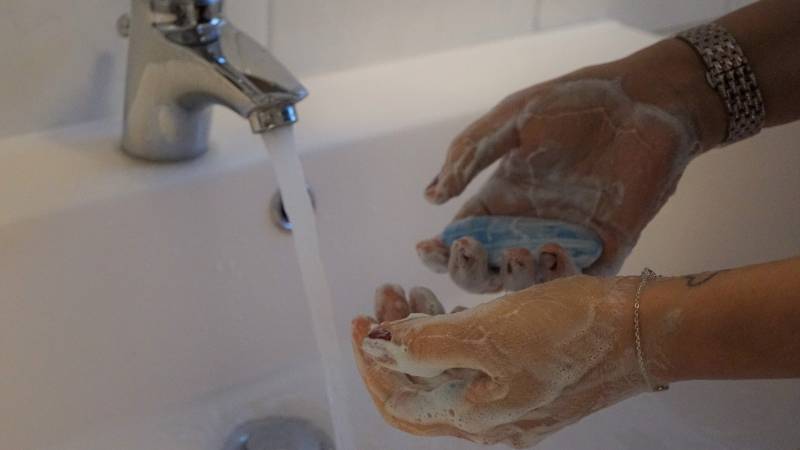Why good handwashing practices are vital to protecting against future pandemics

Hand hygiene expert Dr Mamdooh Alzyood, Lecturer in Public Health at Oxford Brookes University, outlines the importance of regular hand washing and why it could make all the difference to fighting future pandemics.
Dr Alzyood has researched hand hygiene for the last decade, and wants to see the habit of regular hand washing maintained in society long after the Covid-19 pandemic has ended.
Why is hand hygiene so important?
Dr Alzyood: “Our hands act as a reservoir and mode of transmission for microorganisms from one person or place to another. Our hands host more than a thousand pathogens - some of which are benign, while others can make us seriously ill.
“Performing hand hygiene following the right steps at the right time significantly minimises the risk associated with spreading germs, including viruses and bacteria. It is vital to keep hand hygiene at the top of our agenda and prioritise research in this area for anyone who cares about public health.”
Who should practice good hand hygiene?
Dr Alzyood said: “Before the pandemic, hand hygiene was only seen as a medical procedure that should be performed and talked about within clinical settings.
“Hand hygiene is not only for those who are in contact with patients within hospital settings but it is a shared responsibility for everyone at individual, community and policy levels. It means safety for everyone.”
How effective is good hand hygiene at preventing the spread of a virus?
Dr Alzyood: “Hand hygiene - that includes handrub with alcohol-based sanitisers, as well as handwashing with soap and water - remains the single most effective measure to prevent the spread of viruses and diseases from one person to another.
“Handwashing is vital not only inside healthcare facilities but also in the outside world that includes shopping centres, public transport, schools and universities and other places where people gather.”
How has the Covid-19 pandemic affected our handwashing habits?
“I have been researching hand hygiene practices inside hospitals and community settings for the last decade and I was amazed to see the amount of interest and initiatives to bring attention to good handwashing during the Covid-19 pandemic.
“But good hand hygiene practice isn’t just for pandemics - it should be something we always do.
“Healthcare professionals and public health professionals on the frontlines are doing everything they can to reduce the risk of pathogenic microbe transmission and keep us safe.
“We should be always concerned about the things we touch daily and the tragedies that can occur if hand hygiene is marginalised.”
Why must hand hygiene continue long after the Covid-19 pandemic?
Dr Alzyood: “I have been listening to so many professionals and members of the public about things we should improve to enhance hand hygiene compliance. There are real concerns that “everything will go back to normal”, which means not washing our hands when the pandemic is over. Already we can see less intention to buy alcohol hand sanitisers and to wear face masks compared to when the pandemic started. Are we going to neglect hand hygiene and wait for another pandemic and lockdown?
“If we decide to act as we did before the pandemic, for instance in shaking hands, it is a must that we are germ-aware and use alcohol to sanitise our hands or wash them with soap and water whenever possible.
“The message is very clear, simple and important at the same time - hand hygiene should never be seen as a basic unneeded step, but as a core practice that should be embedded with our daily routine beyond the current crisis worldwide.”
How can we educate the public to remain vigilant about hand hygiene?
“Hand hygiene is a way of living, a behaviour and a culture that should be a norm that is embedded within ourselves. It starts with teaching children at home and school how to wash hands. Invest more in enough facilities for the public to wash hands. And be reminded that it is right for every patient and service user to be encouraged and ask healthcare providers to wash their hands.
“These are some practical steps that should be put in place and stay with us well after the pandemic is contained. We can’t underestimate the importance of handwashing to keep us safe.”
